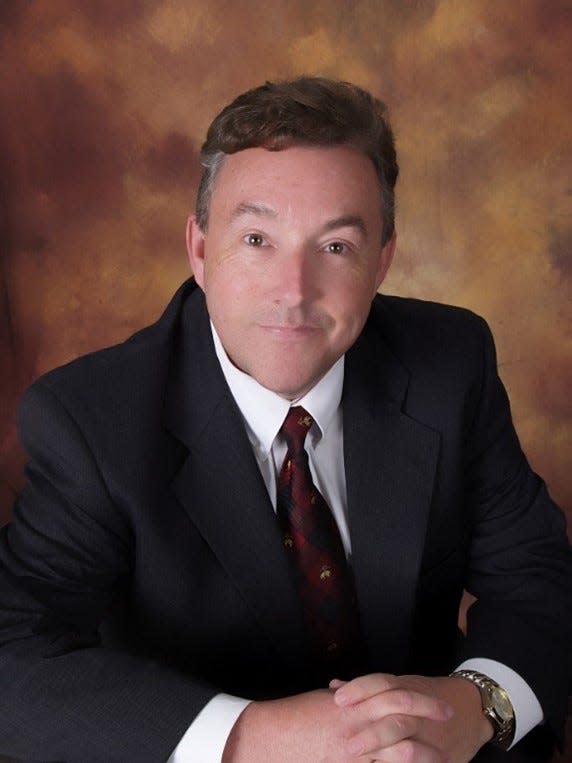Guest column: Remembering Henry Kissinger
- Oops!Something went wrong.Please try again later.
- Oops!Something went wrong.Please try again later.
- Oops!Something went wrong.Please try again later.
Editor's note: Henry Kissinger died Wednesday at his home in Connecticut according to a statement from his consulting firm, Kissinger Associates. The firm did not provide a cause of death. He was 100.
By William G. Hyland Jr.
I was able to meet and talk to Dr. Henry Kissinger on several occasions as my father, William G. Hyland Sr., worked with him closely both in the White House and in the State Department. In 1969, my father joined the National Security Council, on which he worked closely with Dr. Kissinger on arms control, presidential summits and other matters. In 1973, after Dr. Kissinger became secretary of state, my father became head of the Bureau of Intelligence and Research at the State Department. After President Gerald Ford’s defeat in 1977, my father assisted Dr. Kissinger in writing his memoirs which culminated in the seminal book, White House Years.

Henry Kissinger lived a fascinating life, a truly American story. A German Jew who fled Nazi Germany in 1938, Kissinger immigrated to the United States with his parents and became a naturalized US citizen in 1943. He served in the U.S. Army and attended Harvard University.
Through tireless work and study, he earned three degrees from Harvard and ultimately taught as a professor there for 20 years. Kissinger specialized in Soviet foreign policy, coming to the attention of Presidents John F. Kennedy and Lyndon Johnson when he wrote his influential book on nuclear disarmament. Kissinger later served as National Security Advisor and Secretary of State under Presidents Richard Nixon and Gerald Ford and received the 1973 Nobel Peace Prize.
I was able to meet and talk with Dr. Kissinger during his White House years. With my father, we discussed the arms control negotiations with the Russians. My father traveled with Kissinger to Moscow on several occasions. Dr. Kissinger and President Nixon's foreign policy accomplishments are monumental and well documented, but it is some personal remembrances that I wish to share.
Dr. Kissinger is often painted as a power-hungry and scheming bureaucrat, yet this was far from the man I came to know. Although an exacting boss according to my father, often slamming doors and stamping his feet in anger, Kissinger was also a man of immense charm and good humor. My father related one story when he accompanied Kissinger to a Washington Redskins (now Washington Commanders) football game.
When the crowd erupted at a seemingly unfair pass interference call against the home team, Kissinger stood up and looked directly at my father, asking in his deep German accent, “On vat theory?” On another occasion when I visited Kissinger seeking his advice on a congressional internship, he asked me who I wished to work for. Knowing Kissinger was a conservative at heart, I answered, “Sen. Barry Goldwater.” From that moment forward, Dr. Kissinger would playfully greet me with the rhetorical question, “Well young man, where is your Nazi uniform?” On another occasion when I had some academic struggles in college, Dr. Kissinger called me, offering warm encouragement, advising that your foes only win “when you become obsessed with their criticism.”
I last saw Dr. Kissinger at my father’s funeral in 2008. In his usual direct manner, he marched up to me and my mother outside the church, demanding to know “What happened?” He then gave my mother a hug and tender kiss. He gave a very moving eulogy, prompting my young son, only 10 at the time, to say: “Who was that guy with the accent?” I think the modern generation should know and study Kissinger and President Nixon's foreign policy strategies. For better or worse, Kissinger was called upon to play a prominent role in the making and execution of U.S. foreign policy.
His book, White House Years, which my father helped to write, is an account of momentous events. In the acknowledgments to his book, Kissinger called my father, “a trusted associate and longtime friend who contributed enormously to the research especially on Europe East-West relations and SALT (strategic arms limitation talks).” In my view, the book should be fundamental reading as a blueprint for foreign policy strategy. The book details Kissinger’s secret negotiations with the North Vietnamese in Paris to end the Vietnam War, the Jordan crisis of 1970, his back-channel and face-to-face negotiations with Soviet leaders to limit the nuclear arms race, his secret journey to China, the historic summit meetings in Moscow and Beijing in 1972, his “peace is at hand” press conference and the breakdown of talks with the North Vietnamese that led to the Christmas bombing in 1972.
This period in American history was marked by domestic division and international turmoil. It witnessed America's passage into a world in which the United States was no longer dominant. It can be argued that Kissinger laid the groundwork for the destruction of Soviet communism under President Reagen, culminating in a new balance of power, and in the long run, American contribution to the prospects of free societies. Kissinger's description of how he and Nixon used strength of mind to cope with the constraints of limited power, domestic pressures, and both men’s shrewd insights into the way international power politics truly work is a powerful study to readers millennia in the future.
In the end, Henry Kissinger had an invaluable and lasting contribution to American foreign policy, and a powerful influence on a young man.
William G. Hyland Jr. is a litigation lawyer with the national law firm of Vernis & Bowling and works in DeLand. He is the author of four published historical biographies.
This article originally appeared on The Daytona Beach News-Journal: Local lawyer remembers spending time with Henry Kissinger
